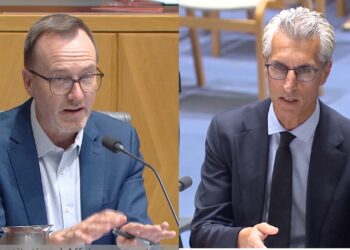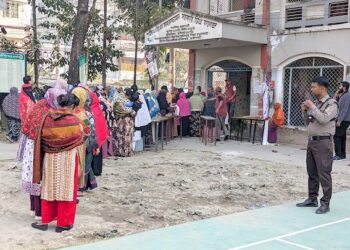Washington D.C., April 19, 2025 – In a move that has stunned the academic community and raised serious concerns about procedural fairness, over 1,000 international students in the United States have had their visas abruptly revoked or legal status terminated, often without prior notice. The terminations stem from sudden changes in the Student and Exchange Visitor Information System (SEVIS) — the federal database that tracks and monitors international students.
According to data reviewed by the Associated Press, at least 1,024 students from 160 universities have been affected since late March. However, immigration advocates and university officials believe the actual number could be considerably higher. The affected students—many from India, China, and other Asian countries—have reported receiving no formal warning before their SEVIS records were terminated, leaving them at risk of deportation and unable to continue their education.
“I Had No Idea Until I Got an Email”
For many students, the notification came not from the U.S. government but through their universities. In most cases, they were informed via email by their international student office that their status had been invalidated, with no explanation provided.
Some of the terminations appear to be linked to minor infractions, including unpaid parking or traffic fines, while others involved technical discrepancies in course load reporting or internship authorisations. In the past, such issues would typically have been handled with institutional oversight and student engagement. But now, students say they are being treated like criminals without any opportunity to clarify or rectify the matter.
“I was in class when I got an email from the international office saying I was out of status,” said one engineering student from Hyderabad, who asked not to be named. “I’ve been here for over two years and never missed a class. This is devastating.”
Legal Battles Underway
Several affected students and universities have since taken the matter to court. Federal judges in multiple states have issued temporary restraining orders, halting deportation proceedings and calling for the reinstatement of SEVIS records pending further review.
Legal experts argue that the terminations represent a clear departure from established protocol, where schools typically play a central role in updating and verifying SEVIS information. “The fact that these terminations are happening without input or even notification to the institutions is deeply concerning,” said one immigration attorney based in New York.
While the Departments of Homeland Security and State have yet to issue a formal statement, the lack of transparency has only intensified anxiety on campuses across the country. Universities are reportedly scrambling to determine which of their students are impacted and what immediate steps can be taken to support them.
Fear Spreads Across Campuses
The ripple effects of the SEVIS terminations have been swift and far-reaching. International students across campuses—from community colleges to Ivy League institutions—have begun altering their routines, avoiding public appearances, and postponing travel out of fear that they may not be allowed to return.
“I’ve stopped attending extracurricular activities, and I haven’t left campus in days,” said a student at a university in California. “We are constantly afraid that ICE could show up at any time.”
The terminations come at a critical time for many students, as final exams approach and summer internships begin. For some, these opportunities now hang in limbo. Students on Optional Practical Training (OPT) are also reporting confusion over their employment status and work authorisation.
Political Backdrop
Critics have pointed to the Trump administration’s renewed focus on immigration enforcement, suggesting that international students are being unfairly targeted as part of a broader crackdown. The sudden nature of the SEVIS terminations, the lack of explanation, and the failure to offer a remedial process have been cited as hallmarks of a system prioritising punishment over due process.
“This is not immigration enforcement. This is targeted harassment,” said one university administrator. “These students are here legally, contributing to our academic and research excellence. They deserve better.”
What Happens Next?
As universities seek answers and courts begin hearing emergency petitions, the fate of over a thousand students remains uncertain. Advocacy groups are urging the federal government to pause all terminations and work with educational institutions to create a transparent appeals process.
In the meantime, the episode serves as a stark reminder of the fragility of international student status in the U.S., and the urgent need for consistent, fair, and accountable immigration oversight.
With many of the world’s brightest minds now watching closely, how this crisis is handled could influence not just academic futures—but America’s global standing as a destination for higher education.











